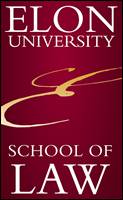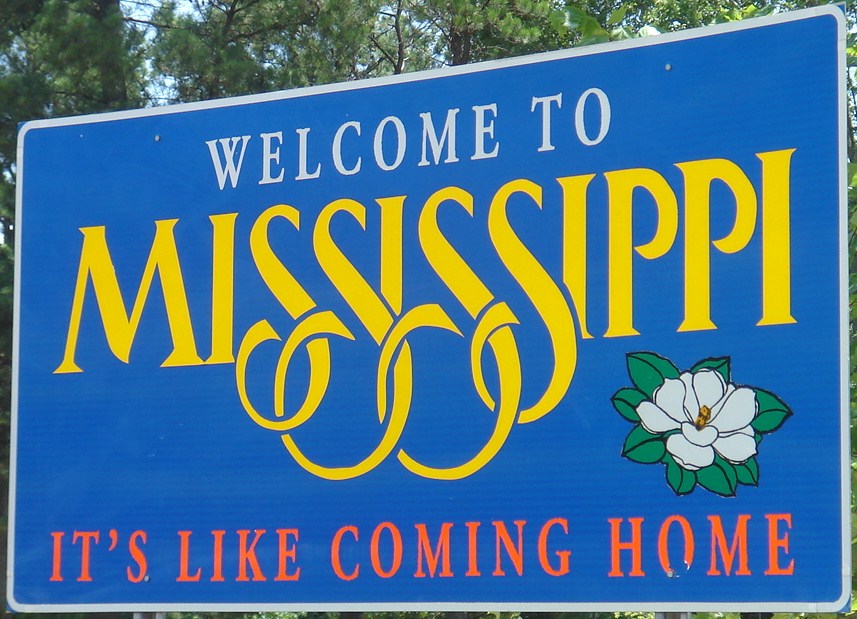December 16, 2010 at 12:33 pm
· Filed under News and Developments
Lutheran Family Services (LFS) has provided free services to refugees for decades in the Carolinas. The Greensboro News & Record reported today that the nonprofit is shutting down its refugee resettlement program because of current “economic conditions.”
The announcement [that LFS was ending its program] came after a series of problems with providing refugees services, including a group of resettled Iraqi families who found themselves in apartments with no heat and leaky plumbing; some lacked proper clothing and follow-up services.
About one-third of all refugees coming to North Carolina come to the Triad (a 12-county area surrounding the cities of Greensboro, High Point, and Winston-Salem), the state refugee coordinator has reported, because of the concentration of resettlement agencies here. . . . The Triad area expects to receive about 400 new refugees next year.”
In an effort to address the gap in legal services this closure will create for refugees in the Triad community, Elon University School of Law plans to open the Humanitarian Immigration Law Clinic in January.
Students, supervised by law professors, will assist clients in applying for political asylum, permanent residency, citizenship and employment authorization, as well as reunifying families separated by war and conflict.
Legal services are “incredibly important” to refugees, who have a year to get a Green Card or become naturalized, said Helen Grant , an Elon law professor and the clinic’s director.
The PSLawNet Blog was excited to learn about Elon’s new initiative to serve their community and wishes them the best as the school community establishes their new clinic!












Permalink
December 15, 2010 at 3:02 pm
· Filed under News and Developments
Permalink
December 15, 2010 at 12:14 pm
· Filed under Events and Announcements
Permalink
December 14, 2010 at 3:35 pm
· Filed under News and Developments
We were pleased to see Peter Kaufman, 3L at Charleston School of Law, featured today in the Post and Courier for completing 1,550 hours of pro bono at the 9th Circuit Solicitor’s Office while in law school. According to Dean Andy Abrams this is the “largest contribution of pro bono service hours of any student in the school’s history.” (and the PSLawNet Blog is willing to wager it would clock in as the largest contribution at most law schools).
From the Post and Courier:
The school requires students to perform at least 30 hours of free public service work as part of its graduation requirements.Abrams said, “graduates like Peter have been instrumental in the remarkable success that our law school has experienced. We are proud of their accomplishments and are confident that each of them will make a significant impact in the days ahead as leaders and change agents in their communities.”
Kaufman said he put in most of the hours during the past two years. And his grades actually improved while he was working in the solicitor’s office, mostly doing investigative research. He attributes that to seeing legal work in action on an almost daily basis. “Things just made more sense,” he said.
He hopes to eventually land a job doing trial work in a solicitor’s office.
But for now, he’s going to study for the bar exam, which he’ll take in February. Then he’ll begin job hunting, he said.
And he’d advise others to do public service even if they’re also busy with other things. “Always try to pay it forward,” he said. “You have to give it away to keep it.”












Permalink
December 13, 2010 at 12:58 pm
· Filed under Career Resources, Public Interest Jobs
Need a job or internship? During the past week PSLawNet has posted: 69 new attorney positions, 55 new internships, and 27 new law related opportunities. Additionally, there are currently 1,263 active opportunities in our job database. To search the database visit PSLawNet.
Featured New Positions:
The U.S. Department of Commerce, Commercial Law Development Program (CLDP) is looking for an International Program Specialist to assist with the development and implementation of plans for technical assistance in developing countries in Eastern Europe and Eurasia, but may be called upon to work in Sub-Saharan Africa and other regions as well. Deadline: December 16. Visit PSLawNet for full details.
The Pennsylvania Institutional Law Project (PAILP) is currently seeking a 2011 Summer Intern. The PAILP was created and designed to meet the needs of low income residents of PA’s prisons, jails, state hospitals, and state centers with the goal of ensuring equal access to justice for indigent institutionalized persons. The intern will be responsible for legal research and writing, case development and investigation and other related duties under the supervision of a staff attorney. Additionally, the intern will be taken to client meetings and court whenever appropriate. Deadline: Feb. 1, 2011. Check PSLawNet for additional details and application instructions.
Featured Public Service Career Resource:
Attention 2Ls and 1Ls: Are you interested in a postgraduate fellowship? Get a jump start by visiting our Fellowship Info and Resources page and Application Deadline Calendar. Postgraduate public interest fellowships enable recent graduates to secure entry level positions with nonprofit organizations, government entities, and educational institutions. Applications for project-based fellowships are typically due either late in your 2L summer or early in your 3L year. The work you do during your second summer may be an essential component in a strong fellowship application. Indeed, while not necessary, it’s ideal if your second summer placement is your would-be fellowship host.
Learn more about getting a PSLawNet job seeker or employer account . . .
Permalink
December 10, 2010 at 7:22 am
· Filed under Events and Announcements, Legal Education, News and Developments, Public Interest Jobs, The Legal Industry and Economy
This week: a controversial testing method for an NYC homelessness prevention program; TARP funds to prop up corporate interests, but not legal services for low-income homeowners?; the Skadden Fellowship Class of 2011 contains 29 budding public interest attorneys; funding calamity averted for D.C. legal services programs; will we lose more local/state government jobs in the recession’s wake?; significant changes in how NYC indigent defense cases are assigned to counsel; an Innocence Project report sees widespread prosecutorial misconduct in California; the Cleveland Plain Dealer looks at inefficiencies in the local criminal courts.
- 12.7.10 – The new class of Skadden Fellows has been announced. Twenty-nine fellowships were awarded to students hailing from 21 law schools. Four schools have multiple awards: Harvard (5), Michigan (2), Penn (2), and Stanford (3). The 18 schools which have one Class-of-2011 fellow are a fairly varied bunch, including: Arkansas, Boston College, CUNY, Texas, UVA, and Widener. Based upon our analysis of the past four annual classes, there has been increasing breadth and diversity with respect to the schools producing Skadden Fellows. See our recent blog post containing comparative numbers for the classes of 2010, 2009, and 2008.
Keep reading . . .
Permalink
December 9, 2010 at 2:20 pm
· Filed under Events and Announcements, Public Interest Jobs
The new class of Skadden Fellows has been announced. Twenty-nine fellowships were awarded to students hailing from 21 law schools. Four schools have multiple awards: Harvard (5), Michigan (2), Penn (2), and Stanford (3). The 18 schools which have one Class-of-2011 fellow are a fairly varied bunch, including: Arkansas, Boston College, CUNY, Texas, UVA, and Widener.
For a little bit of context, the Class of 2010 (last year’s class) consisted of 27 fellows from 20 law schools. The 2009 class conisted of 28 fellows from 14 schools. And 36 fellows from 16 schools comprised the Class of 2008. We don’t have time to look back further – although info on past classes is available via the above link – but based upon the past 4 years we’re seeing more diversity and breadth with respect to the schools from which fellows graduate.
Congrats Class-of-2011 Skadden Fellows!!! Good luck!!!












Permalink
December 9, 2010 at 12:10 pm
· Filed under News and Developments, The Legal Industry and Economy
This will remain an open question for some time . . . we began our coverage of the debate over the adoption of mandatory pro bono in Mississippi back in September. The Clarion Ledger reported this week that the state’s Supreme Court Rule’s Committee is still considering the proposal that would require lawyers to complete 20 pro bono hours annually or in lieu of that service contribute $500 to the state bar for legal services programs. 
The need for increased access to legal services is clear – “one in five Mississippians lives in poverty” and “many of [the state’s] poorest residents lack knowledge of the legal system and/or the financial resources to secure legal help.”
The majority of lawyers in the state (that have voiced their opinion) are opposed to the adoption of such a requirement. The former chief-of-staff to Governor Kirk Fordice, attorney Mark Garriga, categorized the adoption as a separation of powers issue:
“[i]t’s nothing more than a tax on 6,000 people (lawyers)” and the judicial branch does not have authority to impose a tax.
Sandy Middleton, the Executive Director of the Center for Violence Prevention in Pearl, Mississippi, while acknowledging the need for more lawyers to assist victims of domestic violence is still opposed to mandatory pro bono because she fears “if [lawyers] are forced to do it, they may not give their all in cases.”
While the Rules Committee continues to deliberate, the Mississippi Volunteer Lawyers Project (MVLP) has established Advancing Justice, Restoring Hope. This annual campaign aims to raise $50,000 to:
Increase the number of volunteer lawyers statewide, Boost the number of legal clinics to match volunteer lawyers with pro bono clients, Ensure small fees do not impede legal actions, Provide outreach, and Support operations.
What do you think? Should Mississippi (and other states for that matter) adopt mandatory pro bono requirements?












Permalink
December 8, 2010 at 12:58 pm
· Filed under Career Resources, Public Interest Jobs
Yesterday we shared how to utilize Westlaw to search for jobs with federal agencies. Today we wanted to highlight another job searching suggestion from the AvidCareerist Blog: set up Google Alerts to search for jobs as part of your on-line strategy.
My job search clients and I use Google Alerts, in addition to job boards, to find job openings on-line. Alerts pull more openings than the major boards, they pick up openings from Craigslist, and they help my clients find niche job boards for additional feeds.
“What’s a Google Alert and how do I set one up?” you ask. See here.
The AvidCareerist in her blog uses the job title example of a “contract recruiter” — how can you translate this to looking for public interest legal positions?
Let’s say you are looking for a staff attorney position at a nonprofit, you could set up the following alert: {“staff attorney”} {litigate AND research} {“staff attorney” AND apply}. What if you want to restrict this to search for ONLY jobs in California, then: {“staff attorney”} {litigate AND research} {“staff attorney” AND apply AND california}.
If you are interested in a particular practice area, for example civil rights, you could set up an alert tailored to that preference: {“attorney”} AND {“attorney” and apply or submit} AND {“civil rights”}. You can also set up alerts to search for new opportunities at specific organizations, for example: {“attorney”} AND {“attorney” and apply or submit} AND {“U.S. Department of Education”}. To set up your personalized google job alerts go here.
A note of caution from the AvidCareerist:
However, put a strict limit on the amount of time you spend using alerts and feeds to find and respond to job openings. Why? First, as mentioned above, you will only find a tiny portion of the available openings using these tactics. Second, these are the easiest openings to find. Thus, you will have a lot of competition from other job seekers. I suggest that you spend no more than 30 minutes a day building feeds and alerts and responding to postings. How do you that? Only respond to postings that you are well qualified for.
Want more job search resources? Visit PSLawNet’s Career Central.












Permalink
December 7, 2010 at 3:00 pm
· Filed under Career Resources, Events and Announcements, Legal Education, News and Developments
From some rebellious types at Yale Law School, here’s information on a terrific, upcoming event that brings together public-interest minded law students, attorneys, activists, academics, and rodeo clowns (last one’s not true) from parts hither and yon. It’s a great way to make new contacts and explore career options, as well as to gain invaluable knowledge about the challenges and opportunities facing public interest lawyers these days. With no further ado…. it’s RebLaw!!!
Hello Rebel!
You are invited to the 17th Annual Rebellious Lawyering Conference, which will take place on the weekend of February 18-20, 2011. Last year, we brought over 700 practitioners, law students, and community activists to New Haven to discuss progressive strategies for social change within and without the law, and we’re excited to do it again! We will be posting descriptions of panels and workshops on our website and will continue to update with speakers and schedule information as it becomes available. Please visit: http://www.yale.edu/reblaw/
We also invite you to check out our blog, where we’ll be posting information and updates about the conference: http://blogs.law.yale.edu/blogs/reblaw/
Registration is now open on the website. When you register, you’ll be able to sign up receive FREE HOUSING for the weekend in New Haven on the spare beds, couches and floors of local friendly, rebellious law students. Questions? Please contact rebellious.law.questions@gmail.com
Good stuff. We now conclude this post with some theme-appropriate sonic rebellion, courtesy of Social Distortion.












Permalink



































































